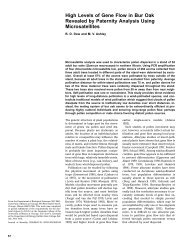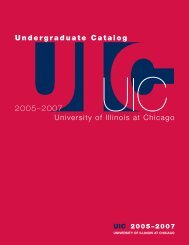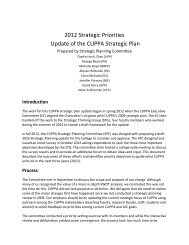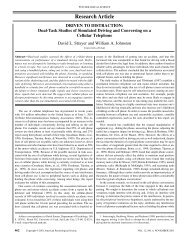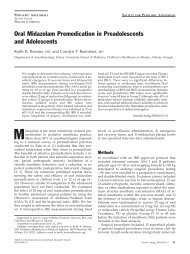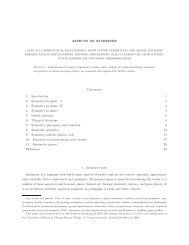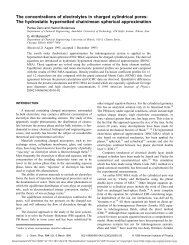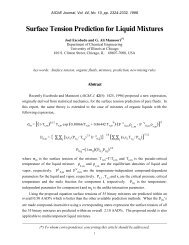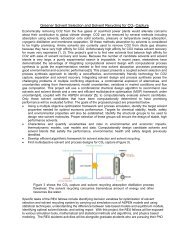Repeating Lenin by Slavoj Zizek
Repeating Lenin by Slavoj Zizek
Repeating Lenin by Slavoj Zizek
Create successful ePaper yourself
Turn your PDF publications into a flip-book with our unique Google optimized e-Paper software.
<strong>Repeating</strong> <strong>Lenin</strong> <strong>by</strong> <strong>Slavoj</strong> <strong>Zizek</strong><br />
9/20/11 2:53 PM<br />
(New York: Chronicle Books 1999).<br />
21. On account of its utter “realism,” The Worst-Case Scenario is a Western book par<br />
excellence; its Oriental counterpart is chindogu, arguably the finest spiritual achievement of<br />
Japan in the last decades, the art of inventing objects which are sublime in the strictest Kantian<br />
sense of the term — practically useless on account of their very excessive usefulness (say,<br />
glasses with electrically-run mini-windshields on them, so that your view will remain clear even<br />
if you have to walk in the rain without an umbrella; butter contained in a lipstick tube, so that<br />
you can carry it with you and spread it on the bread without a knife). That is to say, in order to<br />
be recognized, the chindogu objects have to meet two basic criteria: it should be possible to<br />
really construct them and they should work; simultaneously, they should not be “practical,” i.e.<br />
it should not be feasible to market them. The comparison between The Worst-Case Scenario<br />
Survival Handbook and chindogu offers us a unique insight into the difference between the<br />
Eastern and the Western sublime, an insight far superior to the New Age pseudo-philosophical<br />
treatises. In both cases, the effect of the Sublime resides in the way the uselessness of the<br />
product is the outcome of the extreme “realistic” and pragmatic approach itself. However, in the<br />
case of the West, we get simple, realistic advises for problems (situations) most of us will never<br />
encounter (who of us will really have to face alone a hungry lion?), while in the case of the East,<br />
we get unpractically complicated solutions for the problems all of us effectively encounter (who<br />
of us was not caught in the rain?). The Western sublime offers a practical solution for a problem<br />
which does not arise, while the Eastern sublime offers a useless solution for a real common<br />
problem. The underlying motto of the Eastern Sublime is “Why do it simply, when you can<br />
complicate it?” — is the principle of chindogu not discernible already in what appears to our<br />
Western eyes as the “impractical” clumsy form of the Japanese spoons? The underlying motto<br />
of the Western Sublime is, on the contrary, “If the problems do not fit our preferred way of<br />
solving them, let’s change problems, not the way we are used to solve them!” — is this principle<br />
not discernible in the sacred principle of Bureaucracy which has to invent problems in order to<br />
justify its existence which serves to solve them?<br />
22. Theodor W. Adorno, Minima Moralia, London: Verso Books 1996.<br />
23. In an incident at the US academia, a couple of years ago, a lesbian feminist claimed that<br />
gays are today the privileged victims, so that the analysis of how the gays are underprivileged<br />
provides the key to understanding all other exclusions, repressions, violences, etc. (religious,<br />
ethnic, class...). What is problematic with this thesis is precisely its implicit (or, in this case,<br />
explicit even) UNIVERSAL claim: it is making exemplary victims of those who are NOT that,<br />
of those who can be much easier than religious or ethnic Others (not to mention the socially —<br />
http://www.marxists.org/reference/subject/philosophy/works/ot/zizek1.htm<br />
Page 50 of 57



